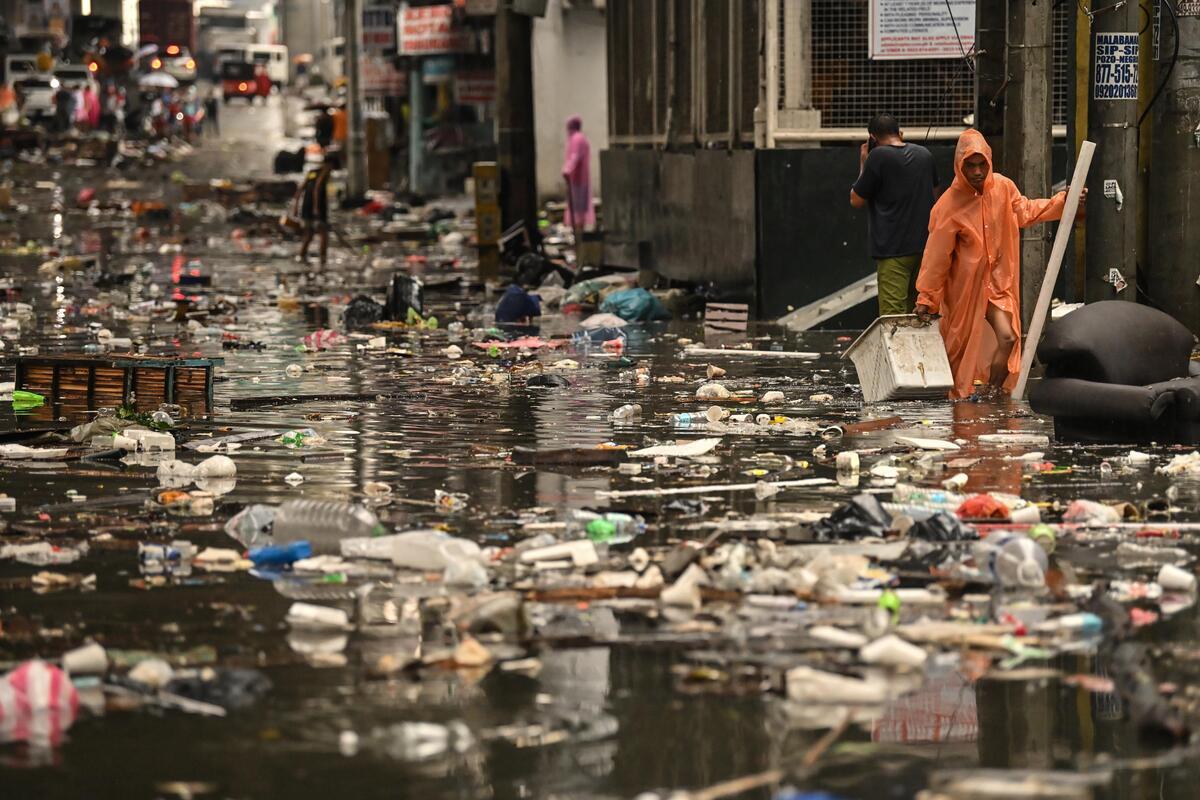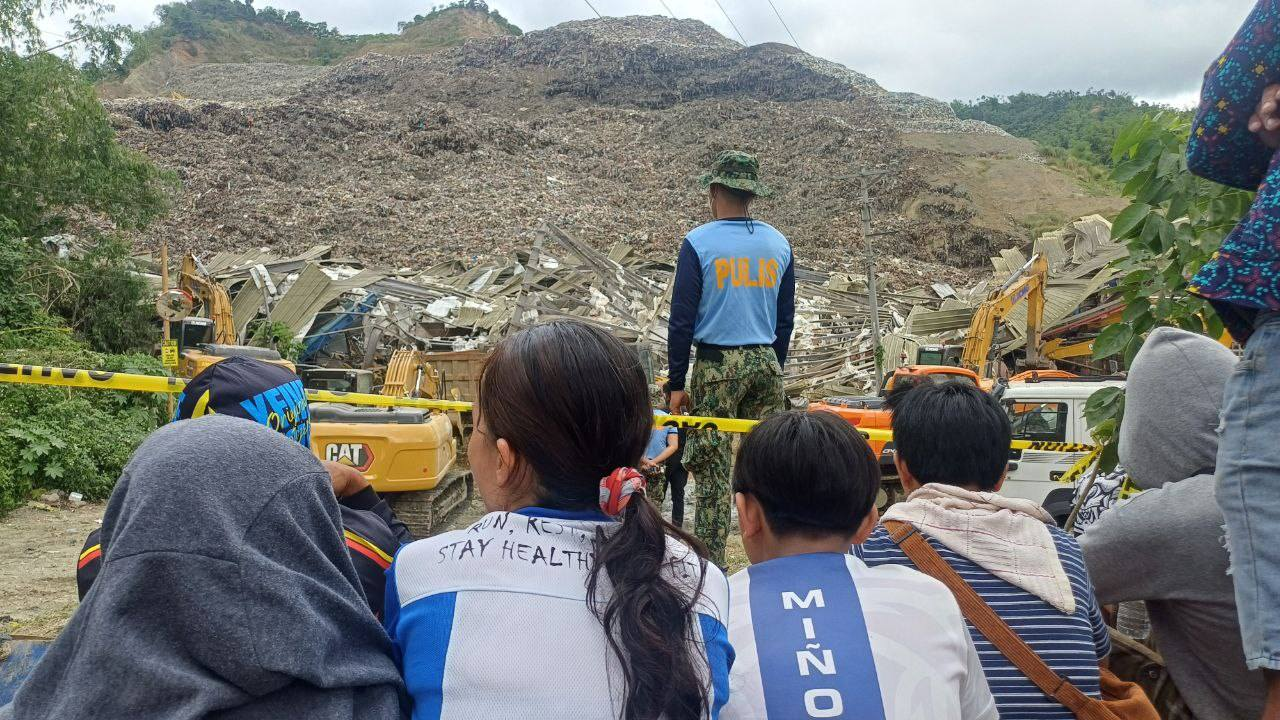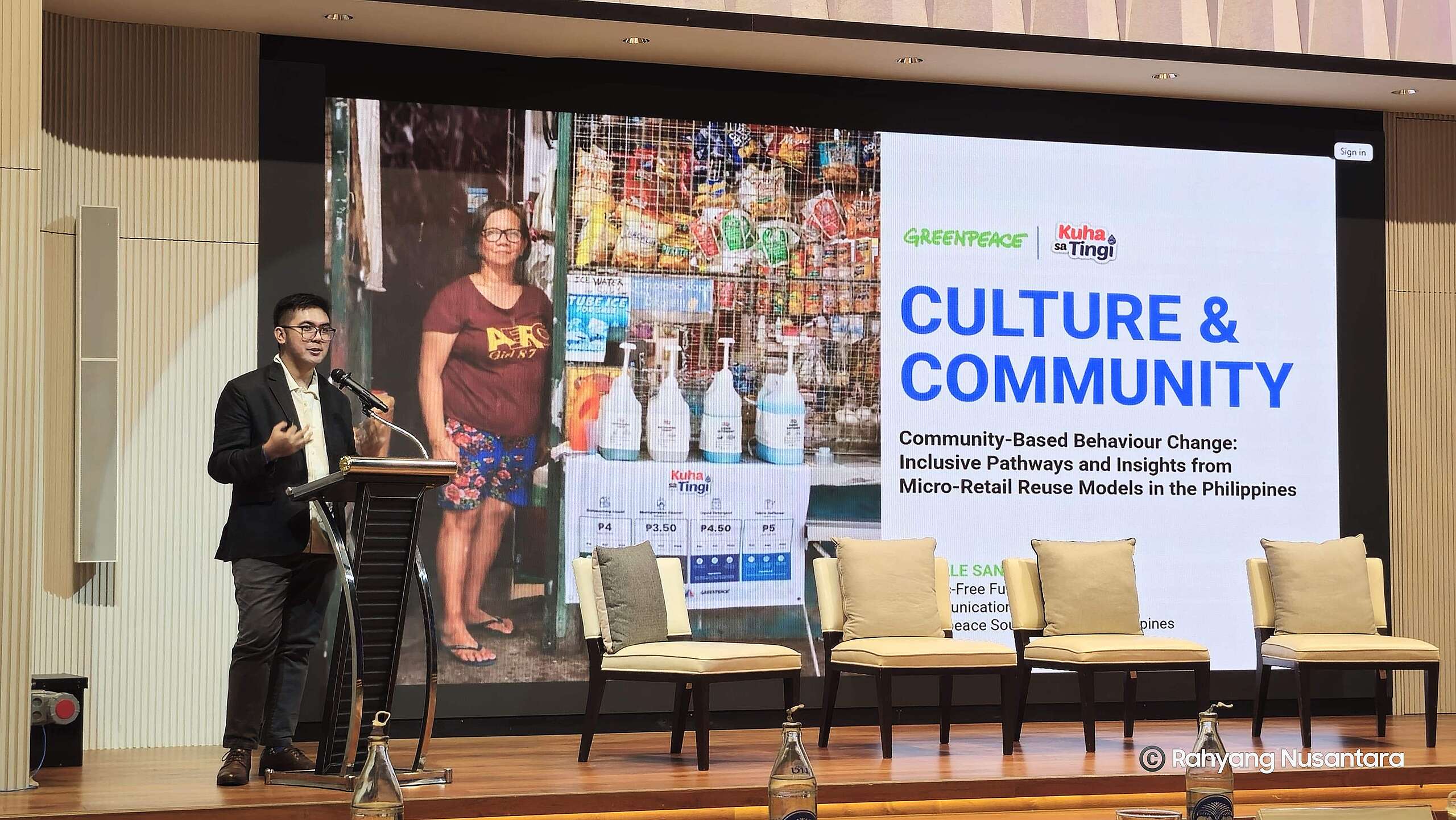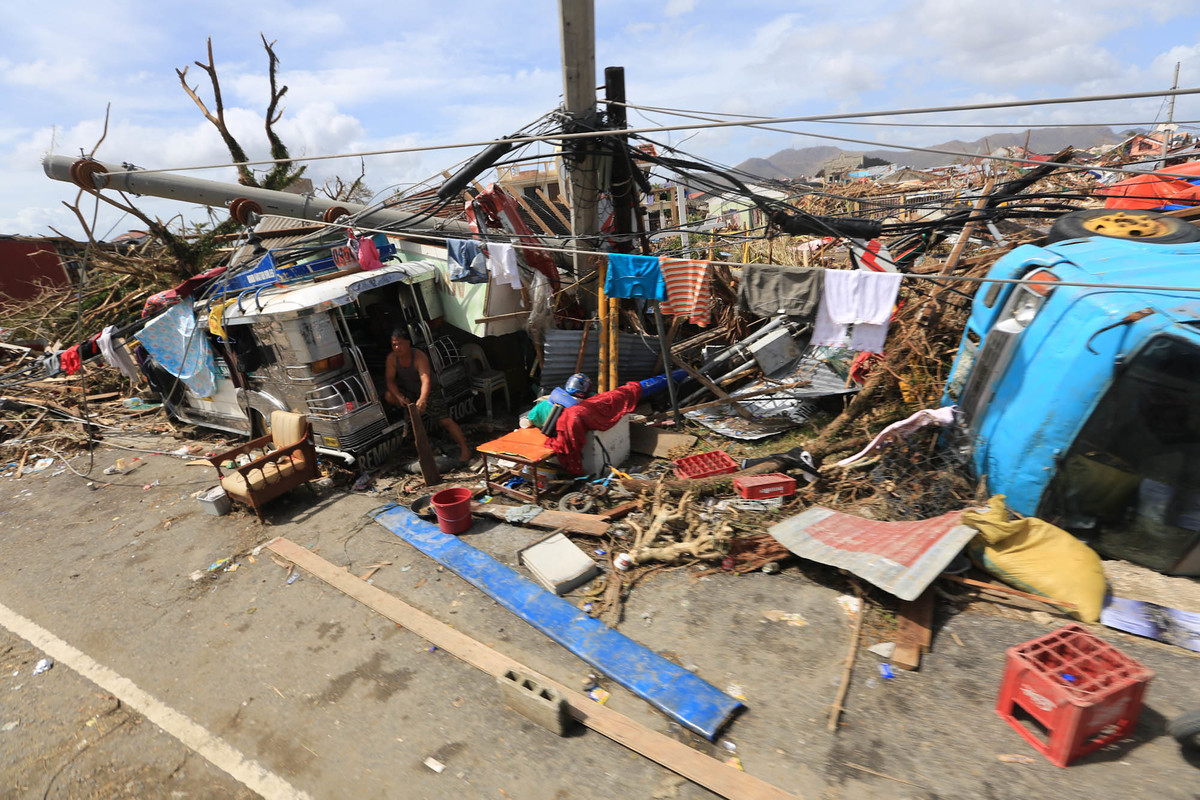
29 July 2025, Quezon City — As floods swamped parts of Metro Manila last week, bringing with them more than 600 tons of collected waste,[1] over 80 organizations from across the Philippines are calling on the Department of Environment and Natural Resources (DENR) to act decisively on the root of the problem: unchecked plastic production.
The groups’ demand comes just days before the final round of the United Nations negotiations for a Global Plastics Treaty opens on August 5 in Geneva, Switzerland—what advocates are calling the most significant environmental deal since the Paris Agreement.
In a joint statement[2] sent to the DENR, Greenpeace Philippines and its allies urged the agency, which leads the country’s delegation to the treaty negotiations, to push for ambitious and legally binding targets to reduce plastic production. The groups emphasized that focusing only on waste management solutions will not be enough to address the worsening impacts of plastic pollution.
“We can’t keep cleaning up while turning a blind eye to plastic production,” said Marian Ledesma, Zero Waste Campaigner at Greenpeace Philippines. “Floods are the symptom. The plastic crisis is part of the disease. It’s time for the DENR to stop playing it safe and push for a Plastics Treaty that cuts production at the source.”
Single-use plastic clogs waterways and drainage systems, worsening the effects of extreme rainfall and typhoons. Advocates say this week’s flooding serves as a reminder that the plastic and climate crises are deeply connected, and that vulnerable communities are being hit hardest by both.
The call comes alongside a new Greenpeace International study[3] revealing that over 51 million people in 11 countries, including the Philippines, live near petrochemical facilities linked to plastics. These sites are associated with toxic air pollution, respiratory diseases, and cancer, with some areas labeled “sacrifice zones” by the UN.
Ledesma said, “This is a fight for our lives. A strong plastics treaty is a win for every Filipino drowning in floods, poisoned by pollution, and ignored by profit-hungry corporations. The government must stand its ground at the talks and come home ready to turn global ambition into national action—not just more talk.”
The groups continue to call on the government to:
- Back a global target to cut primary plastic production.
- Support the phaseout of common single-use plastics and toxic chemicals.
- Establish zero-waste systems like reuse and refill.
- Protect health through programs that uphold environmental rights.
- Ensure inclusive consultations with youth, small businesses, and affected workers.
- Push for fair financing and trade rules.
- Ground the treaty in human rights, just transition, and sound environmental policy.
###
NOTES TO EDITORS:
[1] MMDA collects 600 tons of garbage in NCR streets, pumping stations
QUOTES FROM SIGNATORIES:
“This is no longer just an environmental issue, but a serious human rights concern. We must rise to demand what we all rightfully deserve: clean air, safe water, healthy bodies, and a livable planet. We need a strong and just plastics treaty that reduces plastic production, protects our health, and upholds our rights. We urge our government to push for a treaty that puts people over profit and truly responds to the urgency of the plastic crisis.”
—Glory Rose Manatad
EcoWaste Coalition Senior Policy Officer
“Dapat may saysay ang mga mapagkakasunduan [sa INC 5.2] upang malimitahan ang paggamit ng plastic at hindi na makadagdag sa kasalukuyang polusyon at iba pang epekto sa komunidad gaya ng lumalalang pagbaha kapag tag-ulan.”
—Aloja Santos
Founding President of the Philippine National Waste Workers’ Alliance
“The health sector urges our delegates in the upcoming Global Plastics Treaty negotiations to champion an ambitious and just treaty that addresses plastic pollution and places health at the heart of the treaty. While the health sector may currently rely on plastic products, a blanket exemption would stall the transition away from single-use and toxic plastics, hinder innovation, and impede the adoption of safer and more sustainable alternatives.”
—Dr. Michelle Reyes
Health Care Without Harm Southeast Asia Sustainability Officer
“No child should inherit a planet drowning in pollution. We owe it to them to act now and protect what matters most. Hindi plastik ang pamana na nararapat para sa kabataan, sa halip isang kinabukasang puno ng pag-asa at may hustisya para sa krisis sa klima.”
—Yna Ysabelle Arcenas
Negrosanon Initiative for Climate and the Environment’s Climate and Energy Campaigner
“We call on our leaders to lead with courage. A strong position in the treaty must signal to companies that they must move away from plastic dependence. We also have to remind the world that Global South countries, like the Philippines, are not a dumping ground. We are a nation ready to lead and fulfill a promise to every Filipino, as enshrined in our constitution, the right to a balanced and healthful ecology.”
—Raphaelo Villavicencio
Deputy Director of Programs, Mother Earth Foundation
For more information and interview requests, please contact:
Eunille Santos
Communications Campaigner, Greenpeace Philippines
[email protected] | +63 9175411248 (SMS & WhatsApp)



